ADSactly Folklore: Virgil, the poet-magus, and the Castle of the Egg
What is folklore? A collection of traditional beliefs and stories, transmitted by word of mouth. The things a community believes in and would gladly impart them with any foreigner. When I visited Naples, the first thing I was told was about the famous Castel dell’Ovo, the Castle of the Egg, which lies on the shore in the Bay of Naples. No, I didn’t hear the story from some guide willing to impress gullible tourists, but from local friends, natives who had learned the legend as children, because the myth surrounding the Castle is fundamental to local culture. Just as the Castle itself and its preservation is fundamental to the city.
The name of the castle comes from a legend which says the Roman poet Virgil had placed a magical egg, deep under the foundation of the building. The egg was put in a strong cage, to protect it. The egg itself was said to come from mythical times, from the voyages of Ulysses, who tied himself to the ship to resist the chants of the sirens. One of these sirens, Parthenope, half-woman, half-bird, threw herself in the sea, desperate she could not seduce the Greek hero, and her body was washed ashore near Naples where, just before she died, she laid the magic egg, later retrieved by Virgil. According to the story, should anything happen to the egg, should it be damaged, great misfortune would befall the city of Naples and its citizens.
A wonderful story, I’m sure you agree, yet it is much more than that. The strength of the popular belief in this legend is demonstrated by events dating a few centuries ago, when the population rioted after rumor spread that the egg had indeed been broken.
The castle is situated on the former islet of Megaride, now a peninsula, and was built in the 12th century, long after the times of Virgil.
During the times of Queen Giovanna (Joanna) I, in the 14th century, Castel dell’Ovo was the royal palace, but also served as prison. Those were turbulent times in Italian history, with lots of infighting and Queen Joanna had quite a number of enemies. After one fight, she had the leader of a rebellious faction imprisoned there. The story says part of the structure collapsed, allowing the prisoner to escape. It is not known if someone tried to free the prisoner or the collapse was simply due to wear and tear, thing is a rumor started that the egg had been destroyed. Maybe her enemies started the rumor, maybe it was simply superstition, but the people were terrified disaster will strike their city and, naturally, the queen was to blame. However, Joanna I was smart enough to understand mob psychology, so she stood in front of the people and swore she had procured another magic egg, to replaced the old one so the city is safe. The Queen, however, was not safe. She was later imprisoned in the castle and, ultimately, murdered.
I wonder how many people know this historic fate and how many believe it’s still the egg Virgil placed there, which brings us to another fascinating example of the power of popular beliefs. You must have heard in school about Virgil, author of the epic poem Aeneid, the story of Aeneas, the Trojan warrior who travelled to Italy and became an ancestor of the Romans. Or you might remember Virgil as Dante’s guide through the Inferno. Forget about that, for the people of Campagna, the region where Naples is situated, Virgil was a great sorcerer and also a prophet. And it’s quite hard to understand how did that happen.
Virgil (70 BC - 19 BC) did study in Naples for a while and he loved the city so much it is believed some fragments of the Aeneid were inspired by this place. And, although he died in Brindisi, he is said to be buried in Naples. I was taken to see this Parco Vergiliano, a few miles from the city center and saw with my own two eyes the room where the remains of the Latin poet were found, presumably. Actually, no one knows what happened to Virgil’s remains. Today it’s just a tourist attraction, but for many centuries during the Middle Ages it was a pilgrimage site. This ‘pagan cult’ of a pre-Christian poet was deeply disturbing to the Catholic Church, who ordered the construction of a church in the area. A nice church, yet, to this day, people who visit the area come to see Virgil’s resting place.
Oddly enough, the cult of Virgil is connected to Christianity, as it was Christian thinkers who interpreted a fragment of his writings as announcing the birth of Christ. In Eclogues 4, Virgil describes the birth of a boy (a puer), ushering in a Golden Age. Some scholars believe the poet was referring to the child the then Emperor, but the people accepted the idea Virgil was a prophet. His works were credited to have divination powers. As early as the second century AD, people resorted to “Sortes Vergilianae”, opening Virgil’s works at random and interpreting a fragment as an answer to whatever problem they had.
Virgil acquired magical powers and became the unofficial protector of the city. Sure enough, the people of Southern Italy were and still are deeply religious, but Virgil was the one they trusted in times of need.
There is, for instance, the story of the Bronze Horse, a beautiful statue said to have been forged by Virgil himself. When a illness spread through the region’s horses, it was claimed that walking the sick animal three times around the statue would cure it. The practice infuriated the local church leaders who decided to destroy the statue once and for all, and only the head was saved. The belief did not disappear and for a long time afterwards, people walked their sick animals around various churches. Makes you wonder if the practice works with broken cars?
The long cave which opens near Virgil’s supposed tomb is also said to have been created one night by the poet using his magical powers. Some stories say it was his piercing gaze that bore through rock.
Or there is the legend of the Golden Fly, created by Virgil to rid the town of Naples of the swarms of flies plaguing the city.
The giant snake that roamed the city killing women and children? Virgil used his magic to slay the beast.
The putrid marshes surrounding the town and spreading disease? The poet took care of the problem and transformed the whole area into beautiful gardens.
When the fishermen complained fish was scarce one season, Virgil made a sculpture of a magic fish, solving the problem.
And, of course, the poet took it upon himself to protect the city from an eruption of the nearby Vesuvius, building a bronze archer with his arrow pointed at the top of the volcano.
Apart from a few artifacts that can somehow be connected to these popular beliefs, there is obviously no proof as to Virgil’s magical powers, yet the legend lived on for many centuries, resisting the Church’s efforts to eradicate the cult.
As it happens, one of Vigil’s contemporaries, the famous poet Ovid was sent in exile to Tomis, now part of my country Romania. It’s something that we are proud of, naturally, as it is not a little thing to have one of the greatest poets of the Roman era write about your country. His memory is honored, there are statues and places that bear his name, but no legends of any kind. While the Italians transformed Virgil into a mythical figure, we kept the memory of the historical figure.
Castel dell’Ovo is one of my favorite places in the world and, even if I don’t believe in magic, I came away from Naples with the legend of the egg. It doesn’t matter if it’s true or not, it’s in my heart and, by writing its story, I’ve done my duty to keep the legend alive. Such is the power of popular tradition.
Post authored by:@ladyrebecca.
References: 1, 2.
Click on the coin to join our Discord Chat

Witness proposal is here:
Go To Steem Witness Page
In the bottom of the page type: adsactly-witness and press vote.

Use small letters and no "@" sign. Or, click here to vote directly!
Thank you!
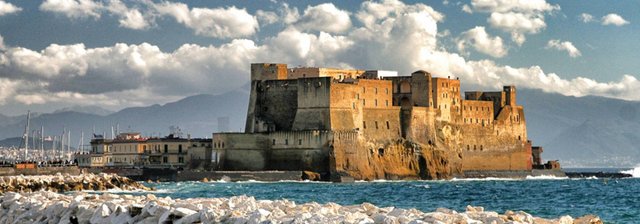
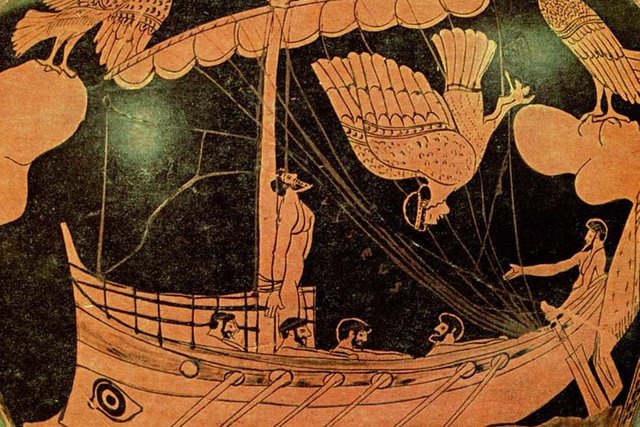
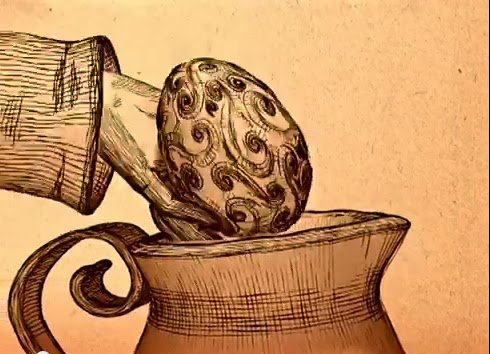
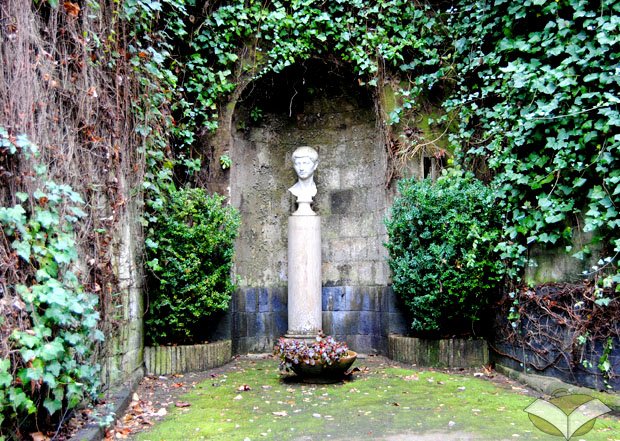
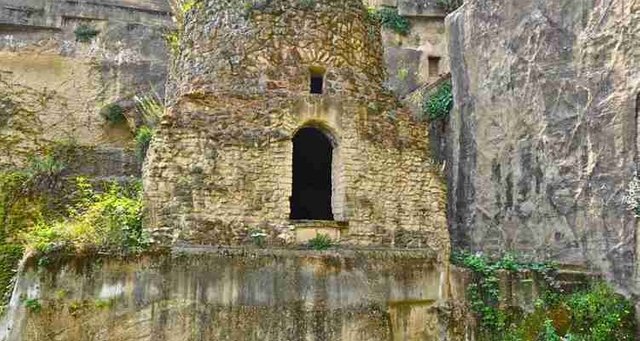
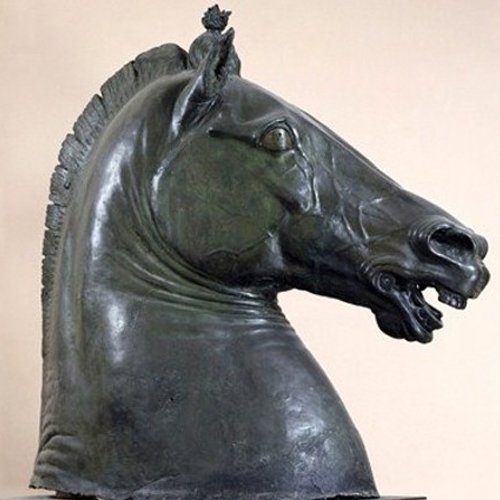
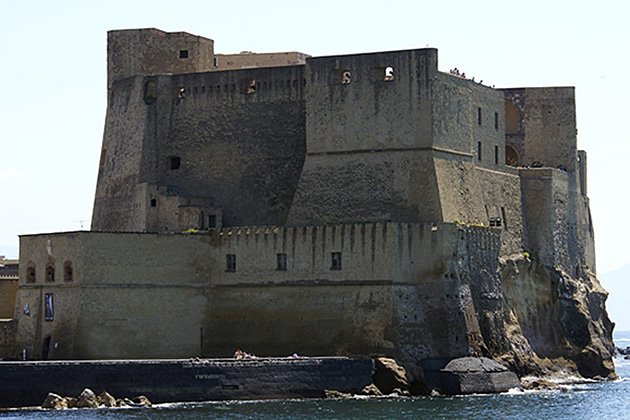
Great and informative post!
Fab. So sublime.
Fascinating stories. Thank you so much for sharing.
I have read Virgil's work in both spanish and english and that alone is a source of marvelous stories. I have also read Dante's Divine Comedy and Virgil's role in the epic poem is just mythical, but I did not know his image/memory was venerated in Naples to the extent you've just narrated.
It goes on to prove that floklore precedes any other form of narratives or offcial discourses.
I find the story of virgil's horse statue very instsresting
What people did around the statue is not as farfetched as many sanctioned practices in churches, and yet, some practices make sense to religious authorities whereas others produce outrage and condemnation.
Incredible the amount of beliefs around the Castle dell''Ovo. Undoubtedly, attractive tuisticos for that region. Virgilio, apparently, has been like a kind of powerful Saint for all his ills. Something good for tour guides and residents who have a lot to tell there. Regards!
@ladyrebecca, The story of Egg is very interesting and exciting to hear. Hope that one day truth of this Egg will be revealed because in my opinion Reality Check is always important.
And this Castle is just amazing and in my opinion we should always protect the history and historical creations.
Posted using Partiko Android
Virgil is undoubtedly one of the most relevant writers of Greco-Latin antiquity and an enigmatic figure. Much is unknown about his life. In this blog I published a few weeks ago an article about Hermann Broch's novel that deals with the last days of his life, entitled The death of Virgil (if you are interested you can go here).
The legend of the castle is fascinating, surrounded by a certain esotericism. The place, as shown in the photos, is beautiful. Now, I didn't know that the whole halo of devotion had been woven around his figure. In Venezuela, it has happened with the poet Cruz Salmerón Acosta, in his native town, Manicuare, where he is almost a saint for the settlers.
Thank you for your gratifying post, @ladyrebecca.
An interesting story of how poets create realities. Virgil is one of the great universal poets. I remember reading some legends about him; in fact, I remember one that told that he once gave a fly a funeral. I don't know if it's real. In Venezuela, we have a poet named Cruz Salmerón Acosta, very appreciated by his people called Manicuare. Legend has it that Manicuare lived through a terrible drought. The earth was a hard and arid crust without trees; the animals died of thirst and the sun. But when Cruz Salmerón died, he said he would send rain and so it happened. With the death of Salmeron, the rain came to the people. It is also said that every time a year of the poet's death is commemorated, it pours down in the village. Thank you for sharing, @ladyrebecca.